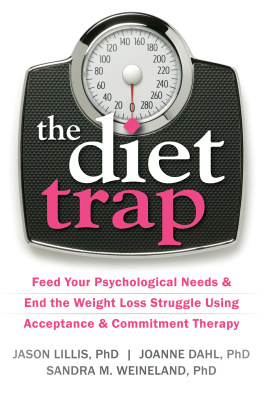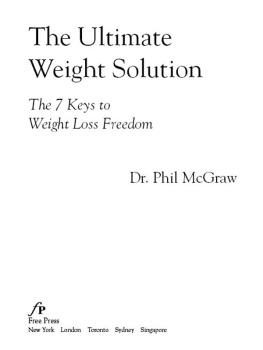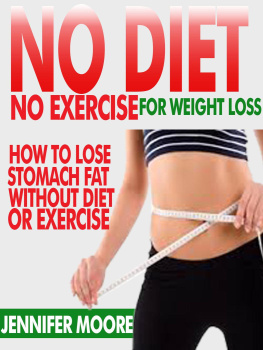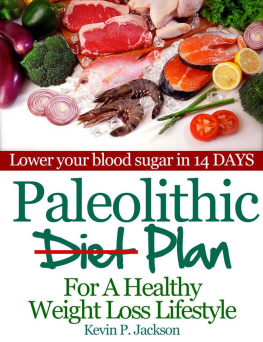
Jason Lillis, PhD, is assistant professor of research at the Alpert Medical School of Brown University and a clinical psychologist at the Miriam Hospital in Providence, RI. He is coauthor of Acceptance and Commitment Therapy and a leading ACT-for-weight-loss research scientist.
JoAnne Dahl, PhD, is professor of psychology at Uppsala University, Sweden. JoAnne is a clinical psychologist specializing in behavior medicine. She is coauthor of The Art and Science of Valuing in Psychotherapy, Acceptance and Commitment Therapy for Chronic Pain, Living Beyond Your Pain, and ACT and RFT in Relationships.
Sandra M. Weineland, PhD, is a clinical psychologist and doctor of psychology at Linkping University, Sweden. She is a specialist in psychotherapy. Her research has been focused on evaluating ACT for people with obesity, with the aim to help participants develop self-compassion and devote energy to living life fully and consciously.
We do not need to be informed about all the problems involved with being overweight. What we do need are positive messages on how to approach this problem without making it worse and adding more burdens to our lives. Acceptance and commitment therapy (ACT) offers a different message than the usual one. We are encouraged not to struggle in vain, but rather to build a new way of life. This book by Lillis, Dahl, and Weineland is a substantial contribution for persons who are searching for a new way of approaching their weight problems.
Gerhard Andersson, PhD, professor in the department of behavioral sciences and learning at Linkping University, Linkping, Sweden
In this book, Lillis, Dahl, and Weineland provide a new and refreshing perspective on the struggle to lose weight and adopt a healthy lifestyle. They offer a radically new approach with practical exercises based on acceptance, self-compassion, and behavior change. The book conveys hope, outlines a realistic way of living a valued life, and takes a functional approach toward weight regulation and a healthy lifestyle. Read this book if you are concerned about your shape and weight: choose life!
Ata Ghaderi, professor of clinical psychology at Karolinska Institute, Stockholm, Sweden

Publishers Note
This publication is designed to provide accurate and authoritative information in regard to the subject matter covered. It is sold with the understanding that the publisher is not engaged in rendering psychological, financial, legal, or other professional services. If expert assistance or counseling is needed, the services of a competent professional should be sought.
Distributed in Canada by Raincoast Books
Copyright 2014 by Jason Lillis, JoAnne Dahl, and Sandra Weineland
New Harbinger Publications, Inc.
5674 Shattuck Avenue
Oakland, CA 94609
www.newharbinger.com
Cover design by Amy Shoup
Acquired by Melissa Kirk
Edited by Jasmine Star
All Rights Reserved
Library of Congress Cataloging-in-Publication Data
Lillis, Jason.
The diet trap : feed your psychological needs and end the weight loss struggle using acceptance and commitment therapy / Jason Lillis, PhD, JoAnne Dahl, PhD, Sandra M. Weineland, PhD.
pages cm
Summary: The Diet Trap offers proven-effective weight-loss methods based in acceptance and commitment therapy (ACT) to help you change the way you think about food and develop mindful eating habits, so you can ditch the fad diets once and for all, and live a healthier, happier lifestyle-- Provided by publisher.
Includes bibliographical references.
ISBN 978-1-60882-709-1 (pbk.) -- ISBN 978-1-60882-710-7 (pdf e-book) -- ISBN 978-1-60882-711-4 (epub) 1. Reducing diets--Popular works. 2. Weight loss--Alternative treatment--Popular works. 3. Acceptance and commitment therapy. I. Dahl, JoAnne, 1951- II. Weineland, Sandra M. III. Title.
RM222.2. L47785 2014
613.25--dc23
2013036519
To my mother, for nurturing and inspiring me on this path.
Jason Lillis
To my newborn granddaughter, Mildred. May the spirit of self-compassion underlying this text be a helping hand in the great journey of life that you have just embarked on.
JoAnne Dahl
Dedicated with love to my family: mum, dad, Robert, and Jeppe.
Sandra Weineland
Contents
Introduction
If youve tried to lose weight before and struggled to take it off or keep it off, this could be the right book for you. If youve ever beat yourself up, scolded yourself into exercising, blamed yourself for cheating on a diet, or just struggled to find meaning and vitality in the healthy habits you were trying to build, we have an alternative. This book presents a different path to weight loss, and more healthy living in general, through cutting-edge behavior change techniques from acceptance and commitment therapy (Hayes, Strosahl, and Wilson 1999).
The approach in acceptance and commitment therapy (ACT, said as one word) is a compassionate one. Well teach you how to change your habits humanely, with a focus on getting you in touch with how being healthy fits into a life you really want to have. Well give you tools for relating to difficult thoughts and feelings differently. We will also focus on doing what works, as opposed to following rigid rules. We want you to love yourself as you make changes, and well teach you how to do that. Diet books are often selling a program of sacrifice that will purportedly give you the life you wanteventually. Were selling something different: that you can have the life you want right now, while gradually building healthier habits over time.
One caveat: If youve never tried to lose weight before, there are other, more comprehensive resources that can help you gain the knowledge you need to influence your weight. In this book, we assume that you have a good deal of knowledge about how to lose weight, and that youre struggling to apply that know-how or to sustain changes over time. Thats where our methods come in: to teach you how to deal with the barriers that get in the way of applying that knowledge.
We want you to know up front that this book isnt full of dieting advice, step-by-step instructions on how to exercise better, and so on. Youll find no recipes and very little information about nutrition, and we wont be discussing things like the relative worth of margarine versus butter. If youre looking for those things, there are scores of resources that cover those topics, and many of them are very useful. We do have a chapter that covers the basics of weight loss, but its at the end of the book. Why? We feel that applying weight loss rules doesnt help unless you first fundamentally change your perspective and the way you approach living.
Most of the chapters are structured with a brief client story at the beginning, followed by an easy-to-understand overview of the research findings and ACT approach relevant to topics in the chapter. Then we provide exercises: some activities to do right away and some to do over time. The ACT approach is experiential. In order to learn the skills, you need to actually do the activities. Understanding concepts is very different from experiencing them. For this approach to truly work, you need to engage in the activities and learn from your experiences.
Youll also need to keep a journal while working with the book. Many of the activities require that you do some writing, and well usually ask you to use your journal for that. Feel free to use a computer if that works better for you. That said, sometimes you cant beat a good, old-school journal, especially because you can keep it with the book at all times.














